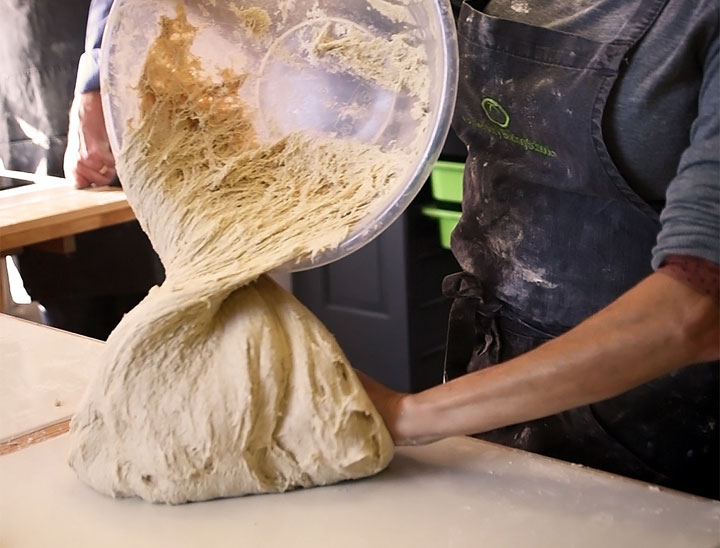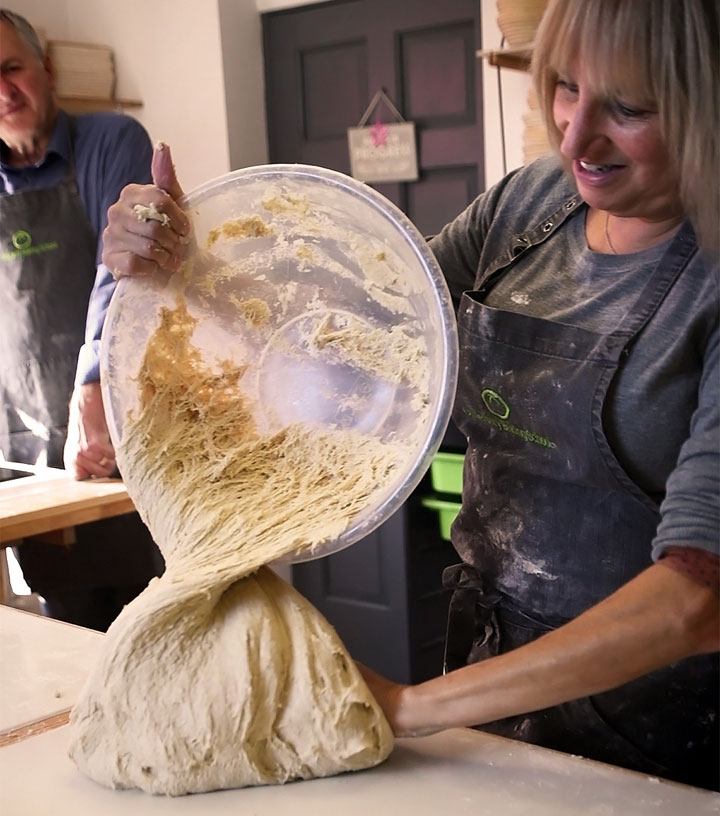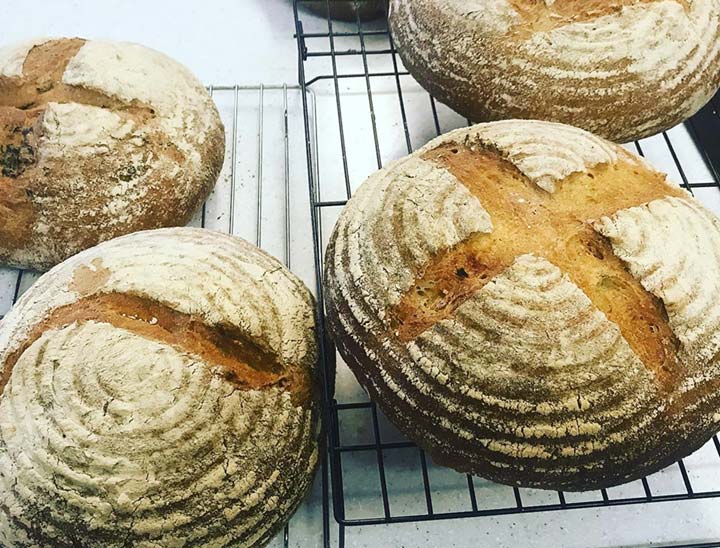Is Sourdough Gluten Free? Why Sourdough Bread Could Solve Your Digestive Issues
Posted on December 16th, 2019

Do you feel bloated after eating bread? Do you go without gluten to avoid tummy troubles? You may have heard that sourdough is better for people who struggle with normal bread, but is sourdough gluten free? And is gluten really a problem for people without coeliac diease anyway?
What is Gluten?
Gluten is a family of proteins found in grains like wheat, spelt, barley, rye and certain other cereals. Gluten is what gives bread dough its stretchy consistency, and helps bread to rise. When eaten, gluten can trigger the release of zonulin, a protein that is naturally produced in the body. However, for some people, too much zonulin may lead to a condition called leaky gut. When this happens, bacteria and toxins leak into your bloodstream from your intestines, causing inflammation and disease in the body.
At the moment, scientists do not agree on how much gluten we should be eating. The majority say gluten is safe for everyone except those with coeliac disease. On the other hand, some health experts say that everyone should try to avoid gluten. While the jury is still out, 15% of UK households now avoid gluten and this trend looks set to rise.
Is Sourdough Gluten Free?
Sourdough is not gluten free, but we know that many people with IBS, gluten intolerance, or gluten sensitivity can tolerate sourdough bread. This is because the methods used to make sourdough break down some of the gluten in the flour so it is easier to digest. Think of sourdough as low-gluten rather than gluten-free.
But in actual fact, gluten may not be the culprit causing your problems with bread. So what else could it be?
Note: Sourdough is not suitable for people with coeliac disease, who should follow a strictly gluten-free diet. If you have coeliac disease but still want to enjoy the benefits of sourdough, always look for gluten-free options.
Beyond Gluten
Bread flour contains other substances that can cause digestive discomfort besides gluten. Fructans are a type of carbohydrate also found in wheat. Many people who think they are gluten intolerant are actually sensitive to fructans. When you eat them, fructans are fermented by the bacteria in your gut, causing unpleasant IBS symptoms. Many foods contain fructans other than wheat, such as garlic, onions, kidney beans, cashew nuts, plums and watermelon. Fructans are also excluded as part of the low-FODMAPs diet, a widely-accepted treatment for IBS.
The way sourdough is made breaks down the fructans as well as the gluten. So even though sourdough is not completely free from gluten or fructans, it is easier to digest. This is because it has lower levels of gluten and fructans.
The Sourdough Process
Sourdough is a traditional, slow method of making bread, a million miles away from a factory-produced sliced white loaf from the supermarket. It has two basic ingredients: flour and water. This is allowed to ferment with wild yeast and other microorganisms found naturally in the air. This creates a ‘starter’ which is ‘fed’ regularly over a few days (by adding more flour and water) until it is active enough to bake bread with it. To make a sourdough loaf, you combine your starter with more flour and water and leave it to ferment for a long period of time – anywhere from 12-24 hours. Compare this to your typical loaf of sliced bread which takes a mere 3 and a half hours to produce!
So what’s actually happening inside the sourdough as it ferments? Let’s take a closer look…
What Happens During the Ferment
The long fermentation process involved in making sourdough is precisely what makes it easier to digest. This is because the wild yeast and good bacteria in the starter actually start doing the work for you! They break down some of the carbohydrates and protein in the flour, releasing gas which makes the bread rise. Remember how fructans get fermented by bacteria in your gut, causing IBS symptoms? Well, the bacteria in the sourdough do the same thing – they ferment the fructans, so it doesn’t happen inside your intestines! They also break down the problematic gluten proteins.
The longer the ferment, the more time this process has to progress. Some people still get IBS symptoms after eating sourdough bread that has been fermented for 12 hours. But they can tolerate a 24-hour bread just fine! Unfortunately, with shop bought sourdough, there’s no way of knowing how long the ferment was. Making your own sourdough means you can control the length of the ferment to suit your own needs.
Grains
The grains you use to make your sourdough bread can also be a factor in how easy it is to digest. Here at Canterbury Baking School, we’ll teach you how to make sourdough with a variety of grains including spelt and kamut. Both of these are better options for people with IBS or who feel uncomfortable after eating bread.
Gluten in Sourdough
Is sourdough gluten free? No. Sourdough is a low-gluten bread. It also contains lower levels of fructans, another substance that can cause unpleasant digestive symptoms in some people. This can make sourdough a better option for people with IBS, gluten intolerance or gluten sensitivity.
Remember, if you suspect you have IBS, gluten intolerance or gluten sensitivity, please seek help from a qualified health professional.



